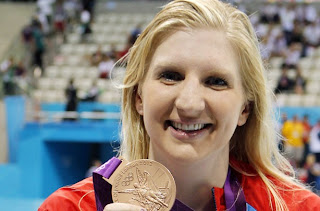A Crown Court judge caused a media hurricane-in-a-teacup back in September for claiming, during sentencing, that burglary required "a huge amount of courage". I remember thinking at the time that saying that aloud in open court itself required a fair degree of bravery.
This week Judge Peter Bowers was issued with a reprimand by the Office for Judicial Complaints for his comments, which he made as part of his justification for sparing the defendant a custodial sentence. Back in September op-ed writers threw their arms in the air in outrage and magistrate's son David Cameron duly took to the Daybreak sofa to froth self-righteously and declare from on high that "burglary is cowardice". Thanks for clearing that up Dave.
But few pundits at the time bothered asking: was Judge Bowers was right? At this point, it's worth looking at his actual wording:
Now let's look at what burglary entails: the brazenness to walk into someone else's property, knowing that if you get caught you face arrest or, if you're an American housebreaker, the possibility getting shot. Yes, it's an incredible violation of other peoples' personal space. And yes, offenders should be punished. But notice that at no point did Judge Bowers say "I think burglary is, like, totes jokes" or "people who have been burgled should just shut their mouths and just suck it up."
To say that burglars are cowards is to play into the conventional narrative that criminals turn to illegal activity because they are too lazy to make it straight. Which simply isn't true. Watch this video of an interview with an American burglar, and listen to the phenomenal level of detail he puts into the planning. Read about drug gangs or mafia bosses expanding their empires, and chances are they are working longer hours than your run-of-the-mill workaholic CEO.
While Judge Bowers was pilloried for his remarks, I think his real crime in the eyes of the tabloid press was compassion. He concluded his sentencing that day:
I might get pilloried for it … it takes a huge amount of courage, as far as I can see, for somebody to burgle somebody's house. I wouldn't have the nerve. Yet somehow, bolstered by drugs and desperation, you were prepared to do that.Firstly, it's worth saying that we have no evidence that this was a dearly held belief judge Bowers had been dying to share with the world for years. Maybe he spoke without thinking, or maybe he was suffering from postprandial somnolence. But let's suppose for a second that he meant what he said: that burglary requires balls.
Now let's look at what burglary entails: the brazenness to walk into someone else's property, knowing that if you get caught you face arrest or, if you're an American housebreaker, the possibility getting shot. Yes, it's an incredible violation of other peoples' personal space. And yes, offenders should be punished. But notice that at no point did Judge Bowers say "I think burglary is, like, totes jokes" or "people who have been burgled should just shut their mouths and just suck it up."
To say that burglars are cowards is to play into the conventional narrative that criminals turn to illegal activity because they are too lazy to make it straight. Which simply isn't true. Watch this video of an interview with an American burglar, and listen to the phenomenal level of detail he puts into the planning. Read about drug gangs or mafia bosses expanding their empires, and chances are they are working longer hours than your run-of-the-mill workaholic CEO.
While Judge Bowers was pilloried for his remarks, I think his real crime in the eyes of the tabloid press was compassion. He concluded his sentencing that day:
I think prison very rarely does anybody any good. It mostly leaves people the chance to change their own mind if they want to. I don't think anybody would benefit from sending you to prison today. We'd all just feel a bit easier that a burglar had been taken off the streets.After all, to claim, even for a second, that criminals are anything other than worthless scum is to treat them as human beings, which opens a very complicated can of worms indeed.



















